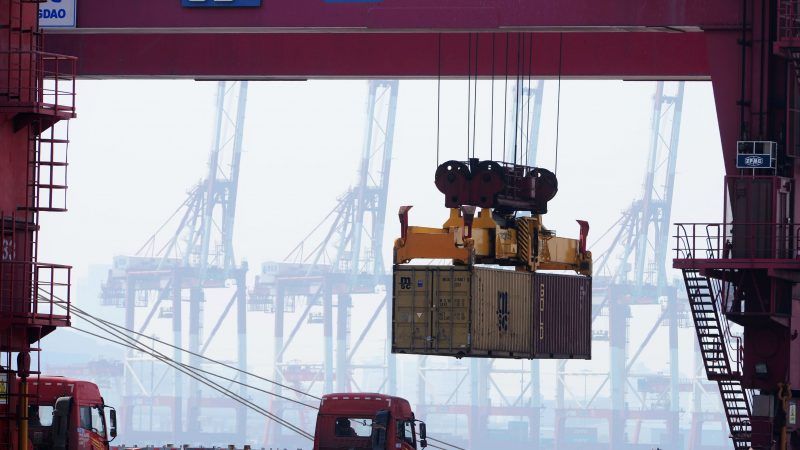Trade Wars Have No Winners
As the U.S.-China trade war escalates again, farmers and small businesses are getting hurt the most, but global manufacturing is taking a hit too.

From the shop floors of Wisconsin to the factories of Asia, no one is winning President Donald Trump's trade war.
The trade war escalated again over the weekend, with a new round of 15 percent tariffs targeting Chinese goods imported into America. Trump has now imposed tariffs on nearly all imports from China—the remaining tariff-free imports will be subject to tariffs on December 15, after the holiday shipping rush, the administration says. Combined with other tariffs on steel, aluminum, and washing machines, the Trump trade war has raised taxes by more than $32 billion on Americans.
More than year into the trade war, it's become apparent that there are other costs too. Some are the direct result of the tariffs themselves, like the fact that business investment is slowing. That is, American companies are reallocating resources to blunt the effects of the tariffs or to reconfigure global supply chains, rather than expanding or hiring. They are trying to avoid losses, instead of looking to grow.
"It's busy. The economy is booming, but there is great uncertainty. A lot of it has to do with trade policy," Torben Christensen, president of Wiscon Products, Inc., told The Wall Street Journal. The 75-year-old company that makes precision machine parts recently lost a $2 billion order that would have been exported to China because of trade tensions. The company is putting more resources towards marketing in an attempt to replace lost revenue, but that means putting off buying new equipment, as the Journal reported.
A Journal-sponsored survey of more than 600 small business owners shows growing worries about the trade war and its effects on the economy. Economic confidence has fallen to its lowest levels since 2012, and 40 percent of respondents say they expect the economy to worsen in the next year—up from just 29 percent who felt that way in July.
Meanwhile, the trade war is also being blamed for a general slow-down in manufacturing across much of the world. Global manufacturing output and trade flow dropped across Europe, South Korea, and Japan during the first six months of the year. A report on American manufacturing released Tuesday by the Institute for Supply Management, a logistics industry association, showed that American factories have contracted in the past month—for the first time since 2016.
"Trade remains the most significant issue, indicated by the strong contraction in new export orders," said Timothy R. Fiore, chairman of the Institute for Supply Management's manufacturing business survey committee, in a statement. "Respondents continued to note supply chain adjustments as a result of moving manufacturing from China. Overall, sentiment this month declined and reached its lowest level in 2019."
By some measures, U.S. manufacturing is already in a recession. Bloomberg has noted that American output has declined in two consecutive quarters, while "global factory activity has contracted for four straight months."
Indeed, there are no winners in the trade war. A prolonged slowdown in manufacturing could trigger layoffs and may raise the risk of a recession. Even if China ends up taking a bigger hit than America does, it's obvious now that there is plenty of pain to go around. And, for now, there is no indication that the U.S. and China are close to making a deal that could put an end to the tariffs and the uncertainty they have created.
Trump could end up as a loser too, since much of his trade policy has been built on the idea that he was going to revitalize U.S. manufacturing. Clearly, that's not happening.


Show Comments (136)